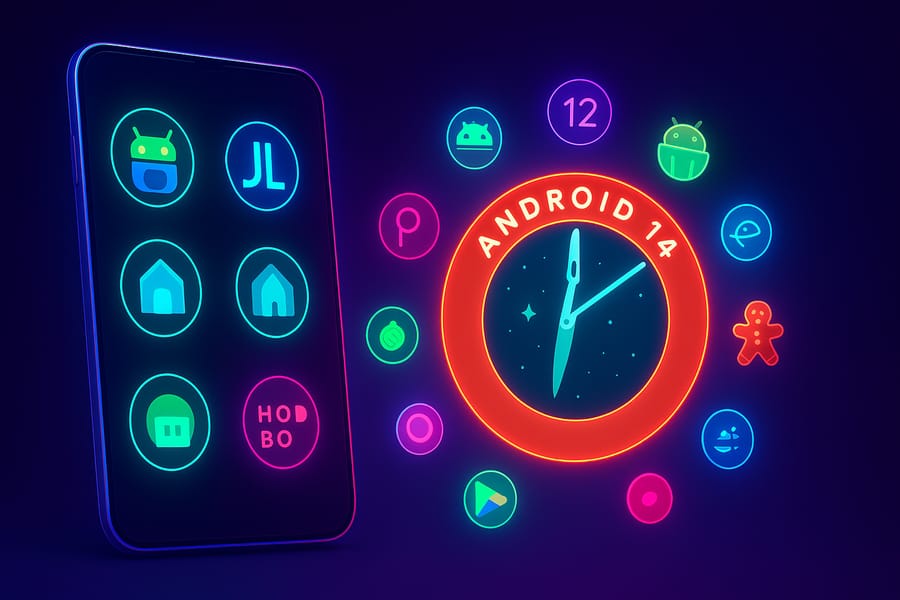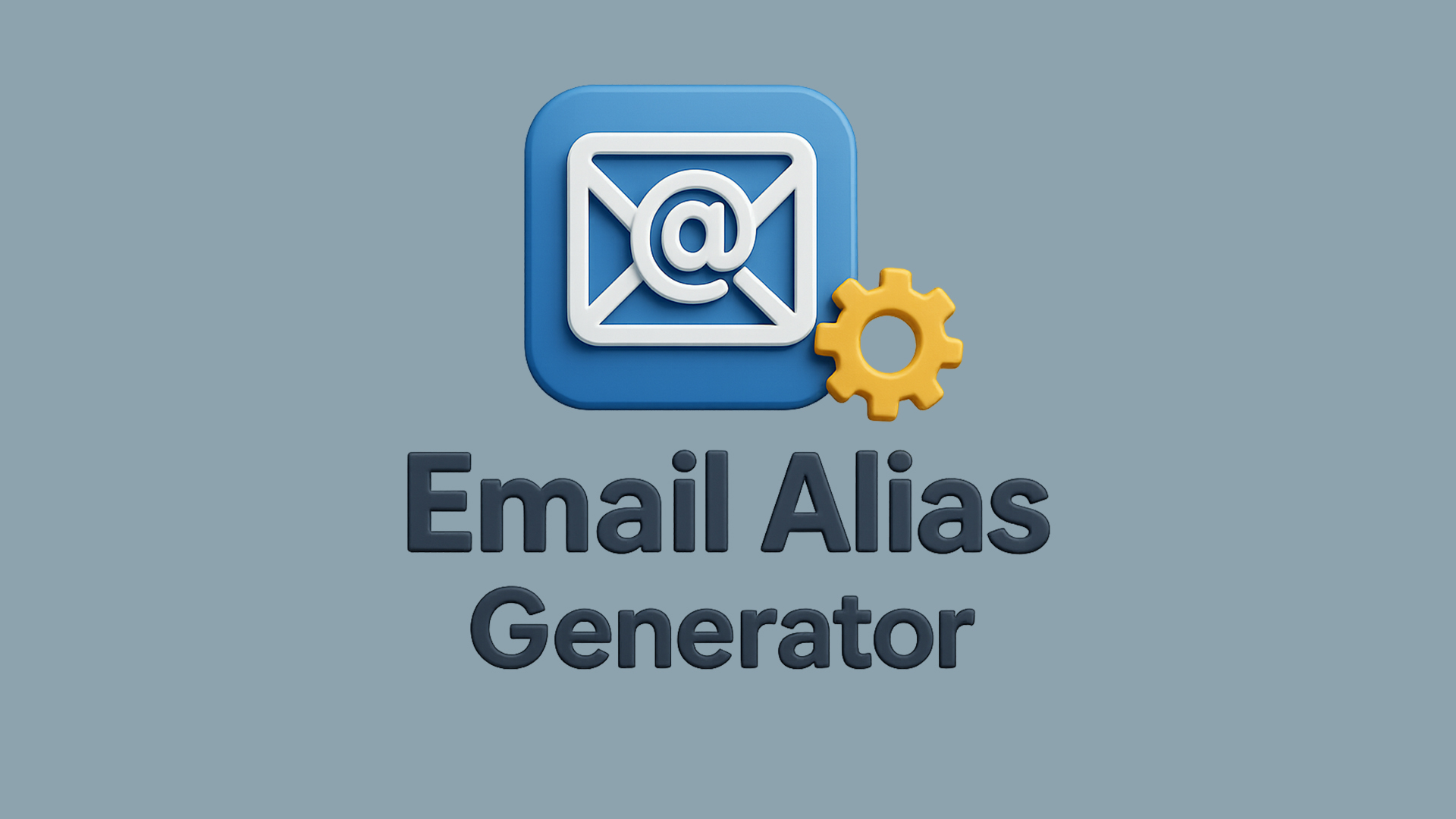⚠️ IMPORTANT WARNING
READ BEFORE PROCEEDING
⚠️ USE AT YOUR OWN RISK
Before removing system apps, please understand:
- 🔴 Warranty: Modifying system apps may void your device warranty
- ⚡ System Stability: Removing essential system apps can cause device instability or malfunction
- 📱 Device Functionality: Some apps are required for core device features to work properly
- 🔄 No Easy Undo: Reinstalling system apps can be difficult without factory reset
RECOMMENDATIONS:
- ✅ Only remove apps you’re absolutely certain are not essential
- ✅ Research each app before removing it
- ✅ Create a backup of important data before proceeding
- ✅ Do not remove apps if unsure about their purpose
- ✅ Start with obviously non-essential apps first
Legal Notice: The author and website are not responsible for any damage, data loss, or device malfunction resulting from following this tutorial. Proceed at your own risk.
What is Bloatware in Android
Bloatware refers to pre-installed software on a device that consumes a significant amount of storage space and system resources without providing substantial value to the user. In the context of Android devices, bloatware is often added by device manufacturers or carriers and includes apps that the user may not find essential or may not be able to uninstall.
Benefits of Removing Bloatware from Android
Increase Storage Space:
Explanation: Bloatware consumes a significant amount of storage on your device.
Benefit: Removing these apps provides more space for other applications, media, and files.
Improved Performance:
Explanation: Bloatware running in the background can impact overall device performance.
Benefit: Removing these apps results in a smoother and faster-running device.
Better Battery Life:
Explanation: Bloatware contributes to increased battery consumption.
Benefit: Removing unnecessary apps can extend your device’s battery life.
Reduce Clutter:
Explanation: Bloatware adds to the clutter on your device.
Benefit: Removing these apps simplifies navigation and helps find desired apps more easily.
Enhanced Security:
Explanation: Some pre-installed apps may have vulnerabilities.
Benefit: Removing unwanted apps reduces the risk of security breaches and exploitation.
Personalization and Customization:
Explanation: Bloatware limits customization options.
Benefit: Removing bloatware allows you to personalize your device by choosing the apps that suit your needs.
In summary, removing bloatware from Android offers benefits such as increased storage space, improved performance, better battery life, reduced clutter, enhanced security, and the ability to personalize and customize your device according to your preferences.
Video Tutorial
If you are from India or if you know the Hindi language, you can follow the video by watching it. If not, you can scroll down below
How To Remove Bloatware From Android
Step 1: Install and Setup Shizuku
So first, you need to install Shizuku correctly and bring it into running mode. If you don’t have an idea of how to do this, you can read this blog: How To Install And Setup Shizuku On Android
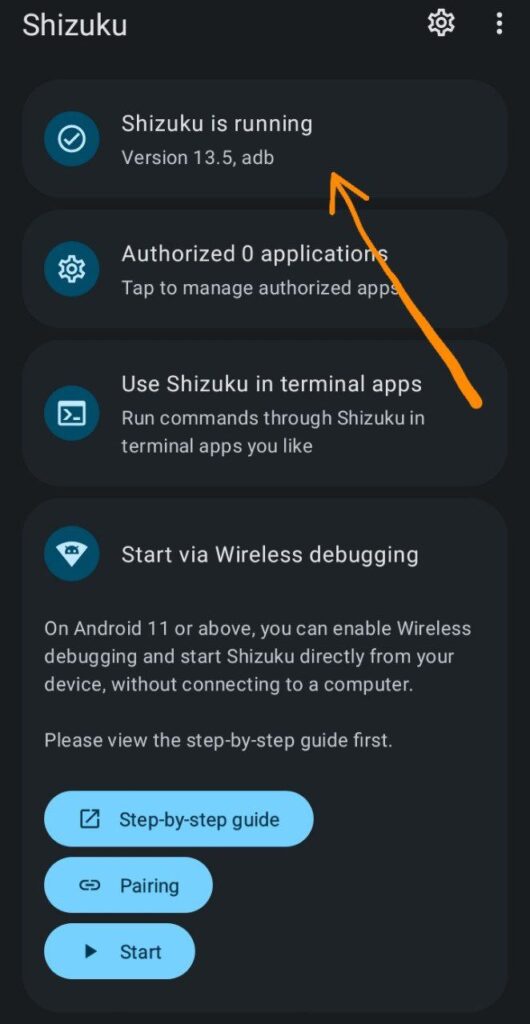
Step 2: Download Package Manager App
Now you need to download the Package Manager App from F-Droid - Package Manager
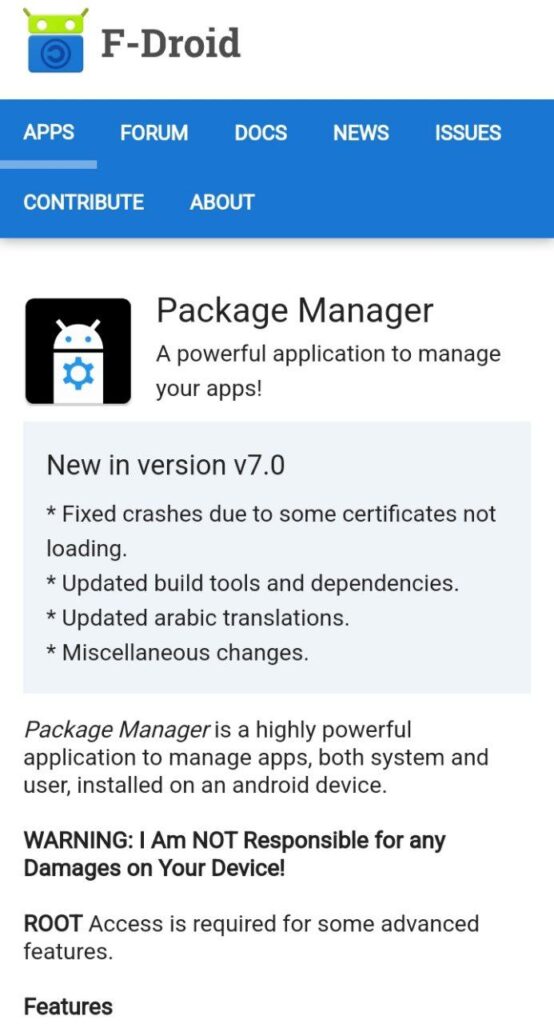
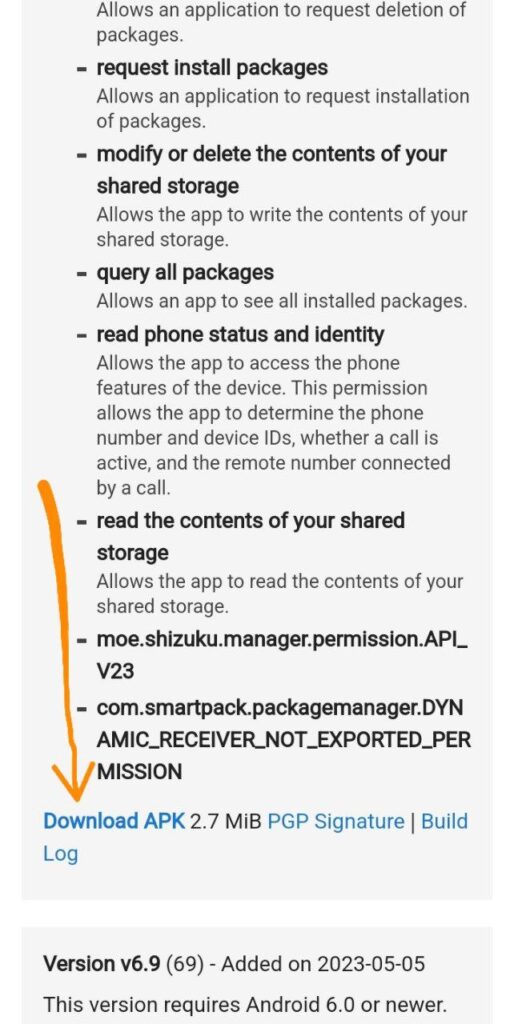
Step 3: Install and Grant Permissions
Now, install the Package Manager, open it, and when you open it, the Package Manager will ask you if it can use Shizuku. You need to allow permission. Double-check whether the permission is allowed by going to Shizuku and checking in the Authorized Applications. If the toggle for Package Manager is off, turn it on. If it’s already on, it means you have successfully granted permission
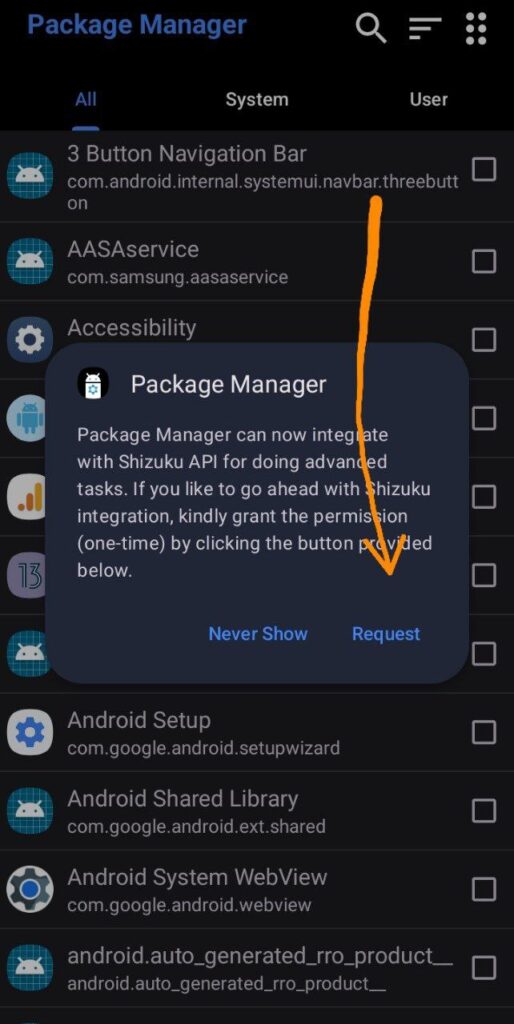
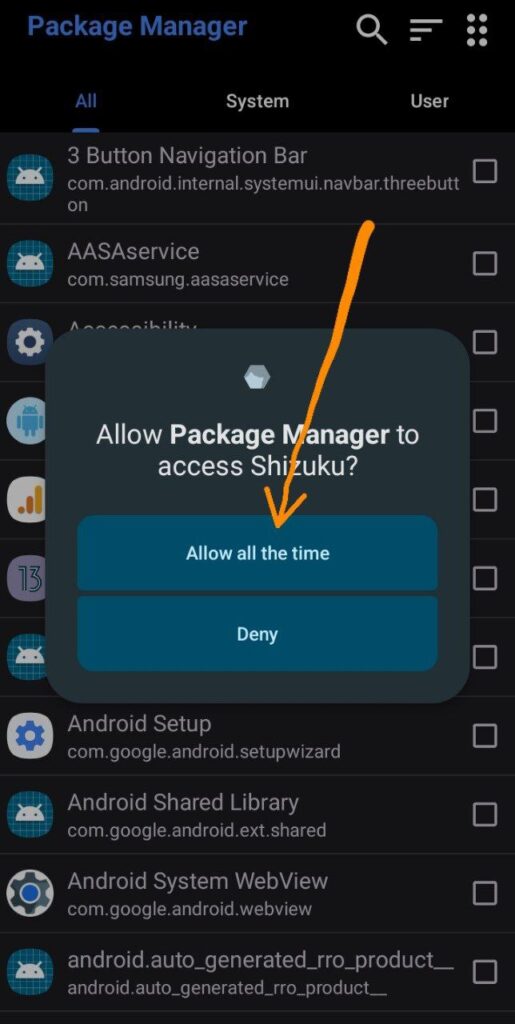
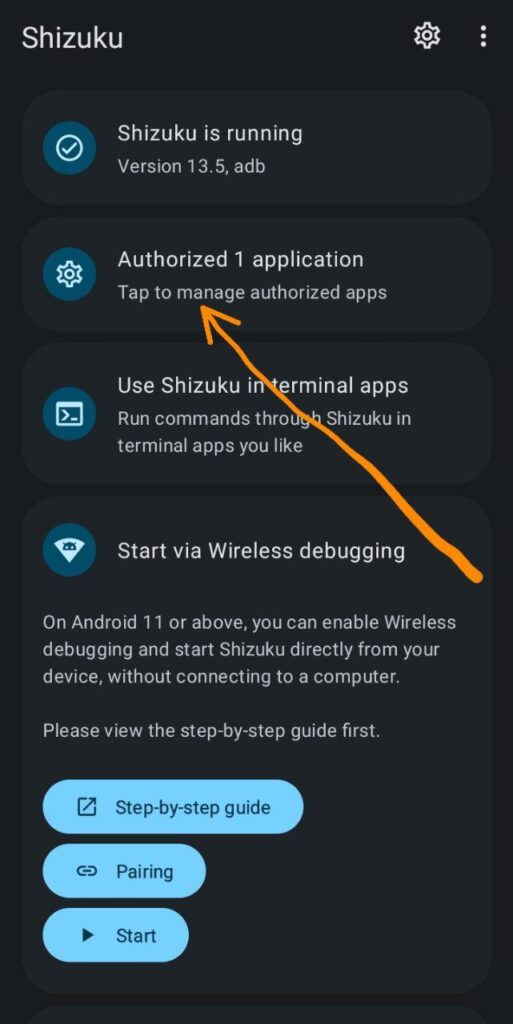
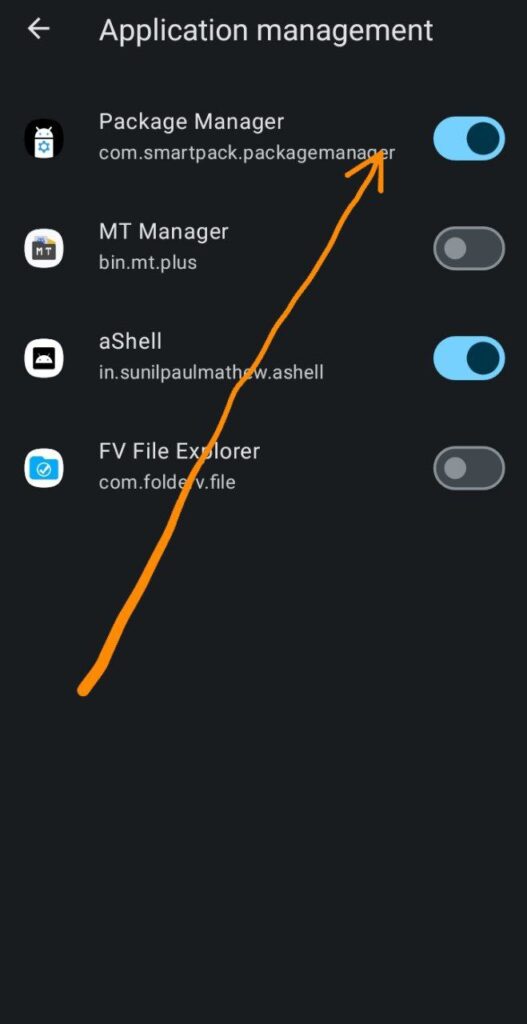
Step 4: Uninstall Bloatware Apps
That’s it, now you can remove any bloatware app. In my Android device, Google Meet is installed as a system app. I will use it as an example to show you how to remove system apps or bloatware apps. First, you need to find the app you want to remove. In my case, it’s Google Meet. After finding it, click on the app icon to open it. Now you will see an uninstall option simply click on it, and you’re done. Your bloatware is uninstalled. It’s easy, but if the uninstallation fails, make sure to check if Shizuku is causing any issues. Shizuku sometimes closes, causing problems
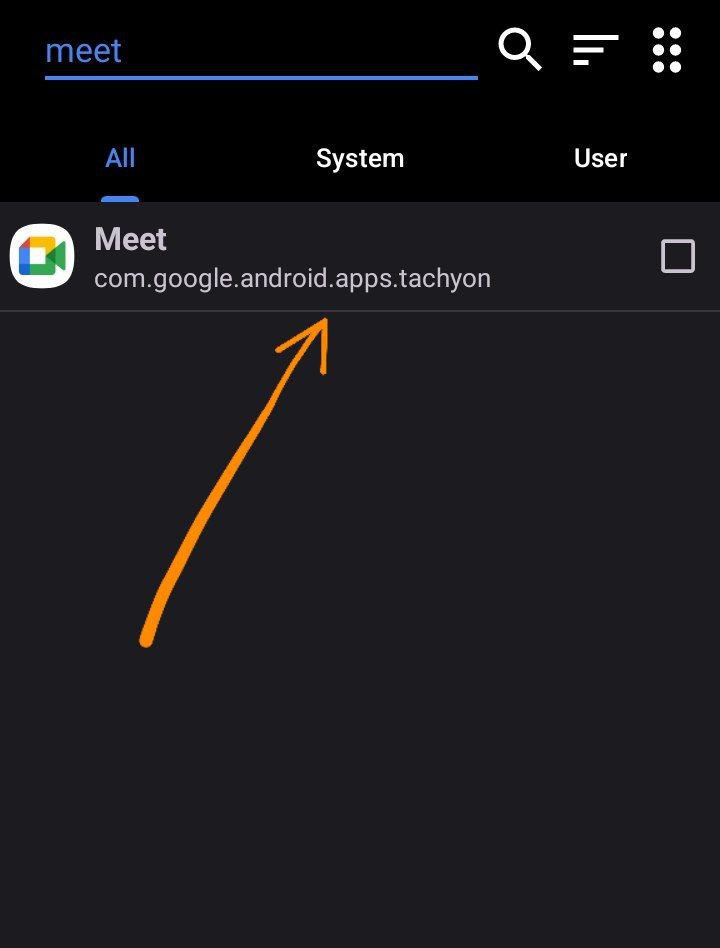
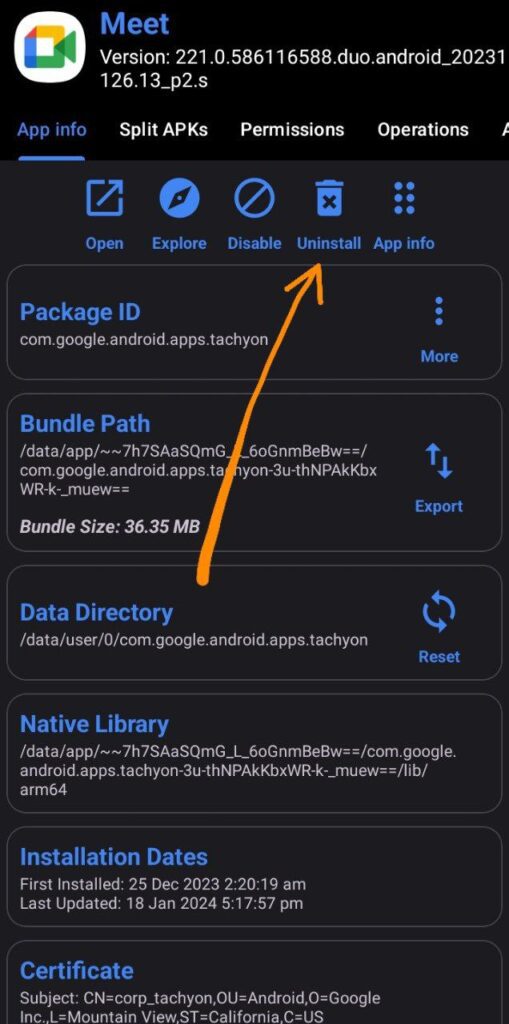
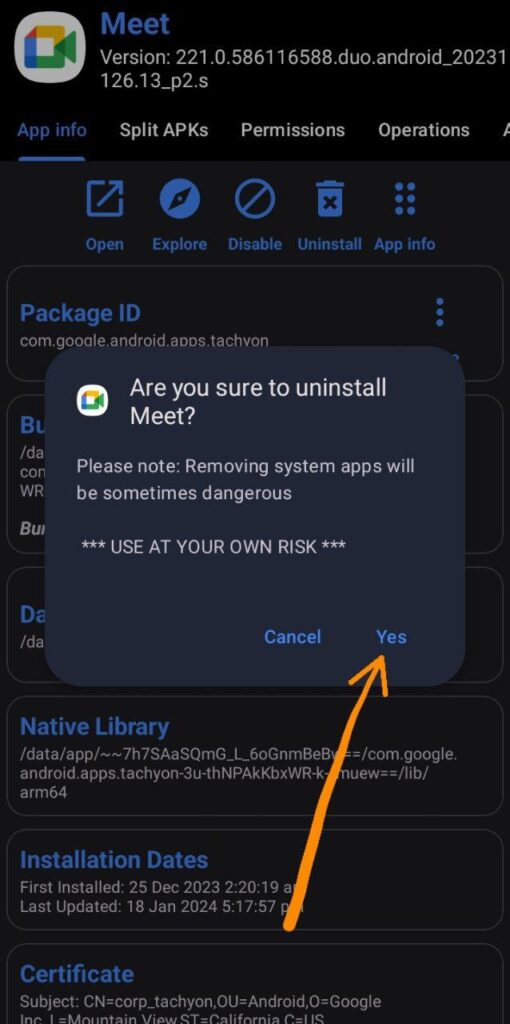
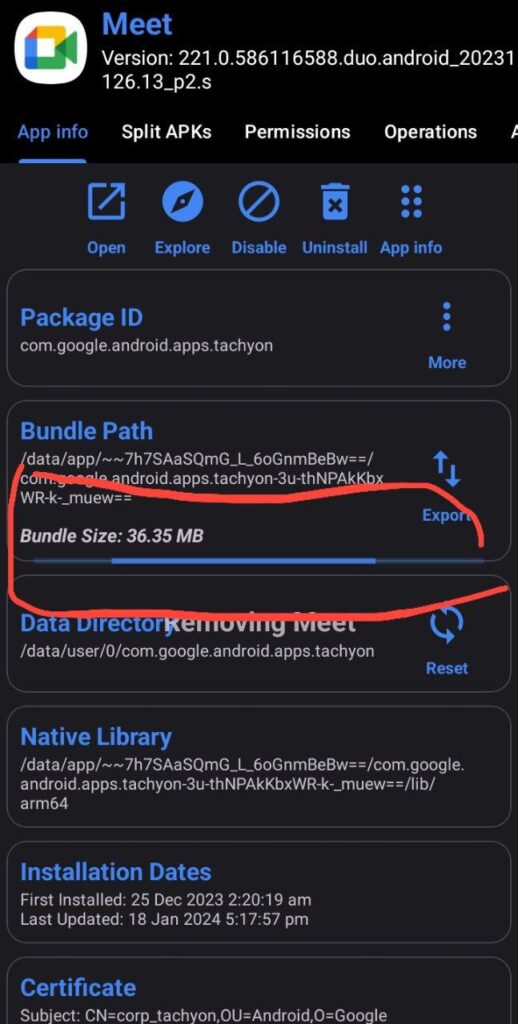

Conclusion
Enjoy!
